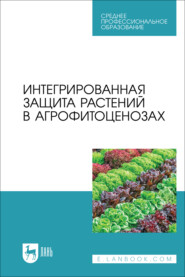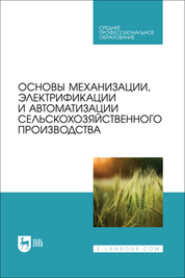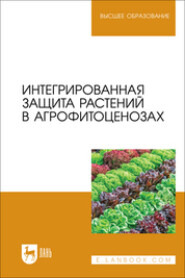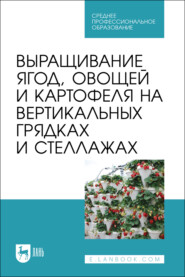По всем вопросам обращайтесь на: info@litportal.ru
(©) 2003-2024.
✖
Short-Stories
Настройки чтения
Размер шрифта
Высота строк
Поля
"To avoid confusion, it is now time that we arrange our key, as far as discovered, in a tabular form. It will stand thus:
5 represents a " d 8 " e 3 " g 4 " h 6 " i * " n " o ( " r; " t
"We have, therefore, no less than ten of the most important letters represented, and it will be unnecessary to proceed with the details of the solution. I have said enough to convince you that ciphers of this nature are readily soluble, and to give you some insight into the rationale[84 - 144:6 rationale. Reasonable basis.] of their development. But be assured that the specimen before us appertains to the very simplest species of cryptograph. It now only remains to give you the full translation of the characters upon the parchment, as unriddled. Here it is:
"'A good glass in the bishop's hostel in the devil's seat twenty-one degrees and thirteen minutes northeast and by north main branch seventh limb east side shoot from the left eye of the death's-head a bee-line from the tree through the shot fifty feet out.'"
"But," said I, "the enigma seems still in as bad a condition as ever. How is it possible to extort a meaning from all this jargon about 'devil's seats,' death's-heads,' and 'bishop's hotels'?"
"I confess," replied Legrand, "that the matter still wears a serious aspect, when regarded with a casual glance. My first endeavor was to divide the sentence into the natural divisions intended by the cryptographist."
"You mean to punctuate it?"
"Something of that kind."
"But how was it possible to effect this?"
"I reflected that it had been a point with the writer to run his words together without divisions, so as to increase the difficulty of solution. Now, a not over acute man, in pursuing such, an object, would be nearly certain to overdo the matter. When, in the course of his composition, he arrived at a break in his subject which would naturally require a pause, or a point, he would be exceedingly apt to run his characters, at this place, more than usually close together. If you will observe the Ms. in the present instance, you will easily detect five such cases of unusual crowding. Acting on this hint, I made the division thus:
"'A good glass in the bishop's hostel in the devil's seat – twenty-one degrees and thirteen minutes – northeast and by north – main branch seventh limb east side – shoot from the left eye of the death's-head – a bee-line from the tree through the shot fifty feet out.'"
"Even this division," said I, "leaves me still in the dark."
"It left me also in the dark," replied Legrand, "for a few days, during which I made diligent inquiry, in the neighborhood of Sullivan's Island, for any building, which went by the name of the 'Bishop's Hotel' – for of course I dropped the obsolete word 'hostel.' Gaining no information on the subject, I was on the point of extending my sphere of search, and proceeding in a more systematic manner, when, one morning, it entered into my head, quite suddenly, that this 'Bishop's Hostel' might have some reference to an old family, of the name of Bessop, which, time out of mind, had held possession of an ancient manor-house, about four miles to the northward of the island. I accordingly went over to the plantation, and reinstituted my inquiries among the older negroes of the place. At length one of the most aged of the women said that she had heard of such a place as Bessop's Castle and thought that she could guide me to it, but that it was not a castle, nor tavern, but a high rock.
"I offered to pay her well for her trouble, and, after some demur, she consented to accompany me to the spot. We found it without much difficulty, when, dismissing her, I proceeded to examine the place. The 'castle' consisted of an irregular assemblage of cliffs and rocks – one of the latter being quite remarkable for its height as well as for its insulated and artificial appearance, I clambered to its apex, and then felt much at a loss as to what should be next done.
"While I was buried in reflection, my eyes fell upon a narrow ledge in the eastern face of the rock, perhaps a yard below the summit upon which I stood. This ledge projected about eighteen inches, and was not more than a foot wide, while a niche in the cliff just above it gave it a rude resemblance to one of the hollow-backed chairs used by our ancestors. I made no doubt that here was the 'devil's seat' alluded to in the Ms., and now I seemed to grasp the full secret of the riddle.
"The 'good glass,' I knew, could have reference to nothing but a telescope; for the word 'glass' is rarely employed in any other sense by seamen. Now here, I at once saw, was a telescope to be used, and a definite point of view, admitting no variation, from which to use it. Nor did I hesitate to believe that the phrase 'twenty-one degrees and thirteen minutes' and 'northeast and by north,' were intended as directions for the levelling of the glass. Greatly excited by these discoveries, I hurried home, procured a telescope, and returned to the rock.
"I let myself down to the ledge, and found that it was impossible to retain a seat upon it except in one particular position. This fact confirmed my preconceived idea. I proceeded to use the glass. Of course the 'twenty-one degrees and thirteen minutes' could allude to nothing but elevation above the visible horizon, since the horizontal direction was clearly indicated by the words 'northeast and by north.' This latter direction I at once established by means of a pocket-compass; then, pointing the glass as nearly at an angle of twenty-one degrees of elevation as I could do it by guess, I moved it cautiously up or down, until my attention was arrested by a circular rift or opening in the foliage of a large tree that over-topped its fellows in the distance. In the centre of this rift I perceived a white spot, but could not, at first, distinguish what it was. Adjusting the focus of the telescope, I again looked, and now made it out to be a human skull.
"On this discovery I was so sanguine as to consider the enigma solved; for the phrase 'main branch, seventh limb, east side' could refer only to the position of the skull on the tree, while 'shoot from the left eye of the death's-head' admitted also of but one interpretation, in regard to a search for buried treasure. I perceived that the design was to drop a bullet from the left eye of the skull, and that a bee-line, or in other words, a straight line, drawn from the nearest point of the trunk through 'the shot' (or the spot where the bullet fell) and thence extended to a distance of fifty feet, would indicate a definite point – and beneath this point I thought it at least possible that a deposit of value lay concealed."
"All this." I said, "is exceedingly clear, and, although ingenious, still simple and explicit. When you left the Bishop's Hotel, what then?"
"Why, having carefully taken the bearings of the tree, I turned homewards. The instant that I left the 'devil's seat,' however, the circular rift vanished; nor could I get a glimpse of it afterwards, turn, as I would. What seems to me the chief ingenuity in this whole business is the fact (for repeated experiment has convinced me it is a fact) that the circular opening in question is visible from no other attainable point of view than that afforded by the narrow ledge on the face of the rock.
"In this expedition to the 'Bishop's Hotel' I had been attended by Jupiter, who had no doubt observed for some weeks past the abstraction of my demeanor, and took especial care not to leave me alone. But, on the next day, getting up very early, I contrived to give him the slip, and went into the hills in search of the tree. After much toil I found it. When I came home at night my valet proposed to give me a flogging. With the rest of the adventure I believe you are as well acquainted as myself."
"I suppose," said I, "you missed the spot, in the first attempt at digging, through Jupiter's stupidity in letting the bug fall through the right instead of through the left eye of the skull."
"Precisely. This mistake made a difference of about two inches and a half in the 'shot' – that is to say, in the position of the peg nearest the tree – and had the treasure been beneath the 'shot,' the error would have been of little moment; but the 'shot,' together with the nearest point of the tree, were merely two points for the establishment of a line of direction; of course the error, however trivial in the beginning, increased as we proceeded with the line, and by the time we had gone fifty feet, threw us quite off the scent. But for my deep-seated convictions that treasure was here somewhere actually buried, we might have had all our labor in vain."
"I presume the fancy of the skull– of letting fall a bullet through the skull's eye – was suggested to Kidd by the piratical flag. No doubt he felt a kind of poetical consistency in recovering his money through this ominous insignium[85 - 149:19 insignium. Sign.]."
"Perhaps so; still, I cannot help thinking that common-sense had quite as much to do with the matter as poetical consistency. To be visible from the Devil's seat, it was necessary that the object, if small, should be white: and there is nothing like your human skull for retaining and even increasing its whiteness under exposure to all vicissitudes of weather."
"But your grandiloquence, and your conduct in swinging the beetle – how excessively odd! I was sure you were mad. And why did you insist on letting fall the bug, instead of a bullet, from the skull?"
"Why, to be frank, I felt somewhat annoyed by your evident suspicions touching my sanity, and so resolved to punish you quietly, in my own way, by a little bit of sober mystification. For this reason I swung the beetle, and for this reason I let it fall from the tree. An observation of yours about its great weight suggested the latter idea."
"Yes, I perceive; and now there is only one point which puzzles me.
What are we to make of the skeletons found in the hole?"
"That is a question I am no more able to answer than yourself. There seems, however, only one plausible way of accounting for them – and yet it is dreadful to believe in such atrocity as my suggestion would imply. It is clear that Kidd – if Kidd indeed secreted this treasure, which I doubt not – it is clear that he must have had assistance in the labor. But this labor concluded, he may have thought it expedient to remove all participants in his secret. Perhaps a couple of blows with a mattock were sufficient, while his coadjutors were busy in the pit; perhaps it required a dozen – who shall tell?"
COLLATERAL READINGS
The Murders in the Rue Morgue, Edgar Allan Poe.
The Mystery of Marie Rogęt, Edgar Allan Poe.
The Purloined Letter, Edgar Allan Poe.
The Sign of the Four, A. Conan Doyle.
A Scandal in Bohemia, A. Conan Doyle.
The Chronicles of Addington, B. Fletcher Robinson.
The Mystery of the Steel Disk, Broughton Brandenburg.
The Rajah's Diamond, R.L. Stevenson.
The Doctor, his Wife, and the Clock, Anna Katharine Green.
The Adventures of Sherlock Holmes, A. Conan Doyle.
The Hound of the Baskervilles, A. Conan Doyle.
A Double-Barrelled Detective Story, Mark Twain.
Gallegher, Richard Harding Davis.
THE BIRTHMARK[86 - Published in the March, 1843, number of The Pioneer, edited by J. R. Lowell. Republished in Mosses from an Old Manse in 1846.]
By Nathaniel Hawthorne (1804-1862).
In the latter part of the last century there lived a man of science, an eminent proficient in every branch of natural philosophy, who not long before our story opens had made experience of a spiritual affinity more attractive than any chemical one. He had left his laboratory to the care of an assistant, cleared his fine countenance from the furnace-smoke, washed the stain of acids from his fingers, and persuaded a beautiful woman to become his wife. In those days, when the comparatively recent discovery of electricity and other kindred mysteries of Nature seemed to open paths into the region of miracle, it was not unusual for the love of science to rival the love of woman in its depth and absorbing energy. The higher intellect, the imagination, the spirit, and even the heart might all find their congenial aliment in pursuits which, as some of their ardent votaries believed, would ascend from one step of powerful intelligence to another, until the philosopher should lay his hand on the secret of creative force and perhaps make new worlds for himself. We know not whether Aylmer possessed this degree of faith in man's ultimate control over nature. He had devoted himself, however, too unreservedly to scientific studies ever to be weakened from them by any second passion. His love for his young wife might prove the stronger of the two; but it could only be by intertwining itself with his love of science and uniting the strength of the latter to his own.
Such a union accordingly took place, and was attended with truly remarkable consequences and a deeply impressive moral. One day, very soon after their marriage, Aylmer sat gazing at his wife with a trouble in his countenance that grew stronger until he spoke.
"Georgiana," said he, "has it never occurred to you that the mark upon your cheek might be removed?"
"No, indeed," said she, smiling; but, perceiving the seriousness of his manner, she blushed deeply. "To tell you the truth, it has been so often called a charm, that I was simple enough to imagine it might be so."
5 represents a " d 8 " e 3 " g 4 " h 6 " i * " n " o ( " r; " t
"We have, therefore, no less than ten of the most important letters represented, and it will be unnecessary to proceed with the details of the solution. I have said enough to convince you that ciphers of this nature are readily soluble, and to give you some insight into the rationale[84 - 144:6 rationale. Reasonable basis.] of their development. But be assured that the specimen before us appertains to the very simplest species of cryptograph. It now only remains to give you the full translation of the characters upon the parchment, as unriddled. Here it is:
"'A good glass in the bishop's hostel in the devil's seat twenty-one degrees and thirteen minutes northeast and by north main branch seventh limb east side shoot from the left eye of the death's-head a bee-line from the tree through the shot fifty feet out.'"
"But," said I, "the enigma seems still in as bad a condition as ever. How is it possible to extort a meaning from all this jargon about 'devil's seats,' death's-heads,' and 'bishop's hotels'?"
"I confess," replied Legrand, "that the matter still wears a serious aspect, when regarded with a casual glance. My first endeavor was to divide the sentence into the natural divisions intended by the cryptographist."
"You mean to punctuate it?"
"Something of that kind."
"But how was it possible to effect this?"
"I reflected that it had been a point with the writer to run his words together without divisions, so as to increase the difficulty of solution. Now, a not over acute man, in pursuing such, an object, would be nearly certain to overdo the matter. When, in the course of his composition, he arrived at a break in his subject which would naturally require a pause, or a point, he would be exceedingly apt to run his characters, at this place, more than usually close together. If you will observe the Ms. in the present instance, you will easily detect five such cases of unusual crowding. Acting on this hint, I made the division thus:
"'A good glass in the bishop's hostel in the devil's seat – twenty-one degrees and thirteen minutes – northeast and by north – main branch seventh limb east side – shoot from the left eye of the death's-head – a bee-line from the tree through the shot fifty feet out.'"
"Even this division," said I, "leaves me still in the dark."
"It left me also in the dark," replied Legrand, "for a few days, during which I made diligent inquiry, in the neighborhood of Sullivan's Island, for any building, which went by the name of the 'Bishop's Hotel' – for of course I dropped the obsolete word 'hostel.' Gaining no information on the subject, I was on the point of extending my sphere of search, and proceeding in a more systematic manner, when, one morning, it entered into my head, quite suddenly, that this 'Bishop's Hostel' might have some reference to an old family, of the name of Bessop, which, time out of mind, had held possession of an ancient manor-house, about four miles to the northward of the island. I accordingly went over to the plantation, and reinstituted my inquiries among the older negroes of the place. At length one of the most aged of the women said that she had heard of such a place as Bessop's Castle and thought that she could guide me to it, but that it was not a castle, nor tavern, but a high rock.
"I offered to pay her well for her trouble, and, after some demur, she consented to accompany me to the spot. We found it without much difficulty, when, dismissing her, I proceeded to examine the place. The 'castle' consisted of an irregular assemblage of cliffs and rocks – one of the latter being quite remarkable for its height as well as for its insulated and artificial appearance, I clambered to its apex, and then felt much at a loss as to what should be next done.
"While I was buried in reflection, my eyes fell upon a narrow ledge in the eastern face of the rock, perhaps a yard below the summit upon which I stood. This ledge projected about eighteen inches, and was not more than a foot wide, while a niche in the cliff just above it gave it a rude resemblance to one of the hollow-backed chairs used by our ancestors. I made no doubt that here was the 'devil's seat' alluded to in the Ms., and now I seemed to grasp the full secret of the riddle.
"The 'good glass,' I knew, could have reference to nothing but a telescope; for the word 'glass' is rarely employed in any other sense by seamen. Now here, I at once saw, was a telescope to be used, and a definite point of view, admitting no variation, from which to use it. Nor did I hesitate to believe that the phrase 'twenty-one degrees and thirteen minutes' and 'northeast and by north,' were intended as directions for the levelling of the glass. Greatly excited by these discoveries, I hurried home, procured a telescope, and returned to the rock.
"I let myself down to the ledge, and found that it was impossible to retain a seat upon it except in one particular position. This fact confirmed my preconceived idea. I proceeded to use the glass. Of course the 'twenty-one degrees and thirteen minutes' could allude to nothing but elevation above the visible horizon, since the horizontal direction was clearly indicated by the words 'northeast and by north.' This latter direction I at once established by means of a pocket-compass; then, pointing the glass as nearly at an angle of twenty-one degrees of elevation as I could do it by guess, I moved it cautiously up or down, until my attention was arrested by a circular rift or opening in the foliage of a large tree that over-topped its fellows in the distance. In the centre of this rift I perceived a white spot, but could not, at first, distinguish what it was. Adjusting the focus of the telescope, I again looked, and now made it out to be a human skull.
"On this discovery I was so sanguine as to consider the enigma solved; for the phrase 'main branch, seventh limb, east side' could refer only to the position of the skull on the tree, while 'shoot from the left eye of the death's-head' admitted also of but one interpretation, in regard to a search for buried treasure. I perceived that the design was to drop a bullet from the left eye of the skull, and that a bee-line, or in other words, a straight line, drawn from the nearest point of the trunk through 'the shot' (or the spot where the bullet fell) and thence extended to a distance of fifty feet, would indicate a definite point – and beneath this point I thought it at least possible that a deposit of value lay concealed."
"All this." I said, "is exceedingly clear, and, although ingenious, still simple and explicit. When you left the Bishop's Hotel, what then?"
"Why, having carefully taken the bearings of the tree, I turned homewards. The instant that I left the 'devil's seat,' however, the circular rift vanished; nor could I get a glimpse of it afterwards, turn, as I would. What seems to me the chief ingenuity in this whole business is the fact (for repeated experiment has convinced me it is a fact) that the circular opening in question is visible from no other attainable point of view than that afforded by the narrow ledge on the face of the rock.
"In this expedition to the 'Bishop's Hotel' I had been attended by Jupiter, who had no doubt observed for some weeks past the abstraction of my demeanor, and took especial care not to leave me alone. But, on the next day, getting up very early, I contrived to give him the slip, and went into the hills in search of the tree. After much toil I found it. When I came home at night my valet proposed to give me a flogging. With the rest of the adventure I believe you are as well acquainted as myself."
"I suppose," said I, "you missed the spot, in the first attempt at digging, through Jupiter's stupidity in letting the bug fall through the right instead of through the left eye of the skull."
"Precisely. This mistake made a difference of about two inches and a half in the 'shot' – that is to say, in the position of the peg nearest the tree – and had the treasure been beneath the 'shot,' the error would have been of little moment; but the 'shot,' together with the nearest point of the tree, were merely two points for the establishment of a line of direction; of course the error, however trivial in the beginning, increased as we proceeded with the line, and by the time we had gone fifty feet, threw us quite off the scent. But for my deep-seated convictions that treasure was here somewhere actually buried, we might have had all our labor in vain."
"I presume the fancy of the skull– of letting fall a bullet through the skull's eye – was suggested to Kidd by the piratical flag. No doubt he felt a kind of poetical consistency in recovering his money through this ominous insignium[85 - 149:19 insignium. Sign.]."
"Perhaps so; still, I cannot help thinking that common-sense had quite as much to do with the matter as poetical consistency. To be visible from the Devil's seat, it was necessary that the object, if small, should be white: and there is nothing like your human skull for retaining and even increasing its whiteness under exposure to all vicissitudes of weather."
"But your grandiloquence, and your conduct in swinging the beetle – how excessively odd! I was sure you were mad. And why did you insist on letting fall the bug, instead of a bullet, from the skull?"
"Why, to be frank, I felt somewhat annoyed by your evident suspicions touching my sanity, and so resolved to punish you quietly, in my own way, by a little bit of sober mystification. For this reason I swung the beetle, and for this reason I let it fall from the tree. An observation of yours about its great weight suggested the latter idea."
"Yes, I perceive; and now there is only one point which puzzles me.
What are we to make of the skeletons found in the hole?"
"That is a question I am no more able to answer than yourself. There seems, however, only one plausible way of accounting for them – and yet it is dreadful to believe in such atrocity as my suggestion would imply. It is clear that Kidd – if Kidd indeed secreted this treasure, which I doubt not – it is clear that he must have had assistance in the labor. But this labor concluded, he may have thought it expedient to remove all participants in his secret. Perhaps a couple of blows with a mattock were sufficient, while his coadjutors were busy in the pit; perhaps it required a dozen – who shall tell?"
COLLATERAL READINGS
The Murders in the Rue Morgue, Edgar Allan Poe.
The Mystery of Marie Rogęt, Edgar Allan Poe.
The Purloined Letter, Edgar Allan Poe.
The Sign of the Four, A. Conan Doyle.
A Scandal in Bohemia, A. Conan Doyle.
The Chronicles of Addington, B. Fletcher Robinson.
The Mystery of the Steel Disk, Broughton Brandenburg.
The Rajah's Diamond, R.L. Stevenson.
The Doctor, his Wife, and the Clock, Anna Katharine Green.
The Adventures of Sherlock Holmes, A. Conan Doyle.
The Hound of the Baskervilles, A. Conan Doyle.
A Double-Barrelled Detective Story, Mark Twain.
Gallegher, Richard Harding Davis.
THE BIRTHMARK[86 - Published in the March, 1843, number of The Pioneer, edited by J. R. Lowell. Republished in Mosses from an Old Manse in 1846.]
By Nathaniel Hawthorne (1804-1862).
In the latter part of the last century there lived a man of science, an eminent proficient in every branch of natural philosophy, who not long before our story opens had made experience of a spiritual affinity more attractive than any chemical one. He had left his laboratory to the care of an assistant, cleared his fine countenance from the furnace-smoke, washed the stain of acids from his fingers, and persuaded a beautiful woman to become his wife. In those days, when the comparatively recent discovery of electricity and other kindred mysteries of Nature seemed to open paths into the region of miracle, it was not unusual for the love of science to rival the love of woman in its depth and absorbing energy. The higher intellect, the imagination, the spirit, and even the heart might all find their congenial aliment in pursuits which, as some of their ardent votaries believed, would ascend from one step of powerful intelligence to another, until the philosopher should lay his hand on the secret of creative force and perhaps make new worlds for himself. We know not whether Aylmer possessed this degree of faith in man's ultimate control over nature. He had devoted himself, however, too unreservedly to scientific studies ever to be weakened from them by any second passion. His love for his young wife might prove the stronger of the two; but it could only be by intertwining itself with his love of science and uniting the strength of the latter to his own.
Such a union accordingly took place, and was attended with truly remarkable consequences and a deeply impressive moral. One day, very soon after their marriage, Aylmer sat gazing at his wife with a trouble in his countenance that grew stronger until he spoke.
"Georgiana," said he, "has it never occurred to you that the mark upon your cheek might be removed?"
"No, indeed," said she, smiling; but, perceiving the seriousness of his manner, she blushed deeply. "To tell you the truth, it has been so often called a charm, that I was simple enough to imagine it might be so."

















